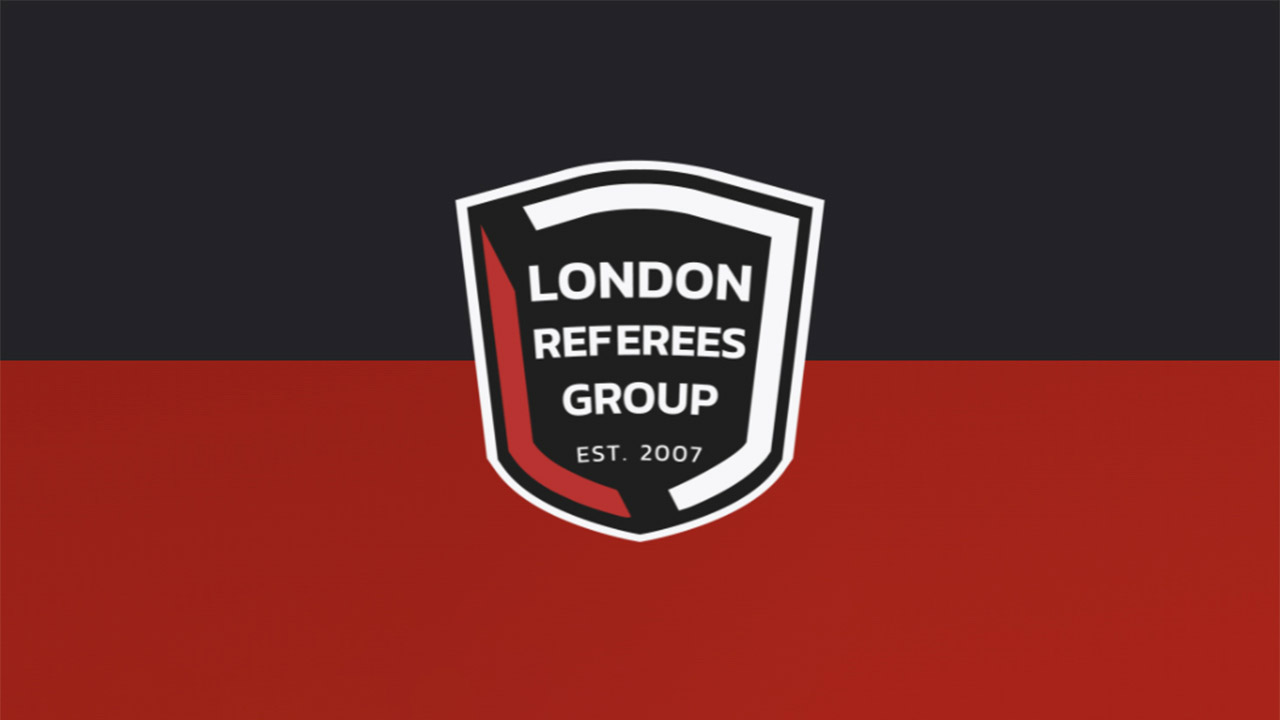Fanshawe College establishes crucial collaboration with London Referees Group
 CREDIT: LONDON REFEREES GROUP
CREDIT: LONDON REFEREES GROUPThe brand-new logo was designed completely by Fanshawe College students.
Fanshawe’s interactive media development program recently partnered up with London Referees Group (LRG) to keep hockey going through the pandemic. Josh Ackworth, President of the LRG said the work done by Fanshawe students was “above and beyond any expectations.” The collaboration was especially important due to the circumstances. Minor hockey was heavily impacted by COVID- 19 and through that, recruiting referees became extremely difficult. With no hockey happening, people weren’t exactly lining up to be referees either. Michelle Giroux, associate dean for the School of Digital and Performing Arts at Fanshawe explains how the LRG’s old way of recruiting became impossible.
“When the pandemic hit, it became a challenge because how they used to recruit was by seeing teams on the ice. So when hockey got shut down, the senior referees didn’t have that opportunity to have conversations face to face. So how do you build a new pool of junior referees to develop and get to know without seeing them? They had no virtual website presence that actually told the story about how the referee group is the third team on the ice,” said Giroux.
Now if you go to the new LRG website, it talks about what the role of the referee is and there’s an option to apply to become part of the mentorship program.
“Taking something that’s out of the ordinary and making it great,” said Giroux. “At Fanshawe, those are the things that we pride ourselves on. Josh Ackworth can now use this, he has an Instagram account. So he can start to highlight the role of a young referee and what they do and start to attract them and meet them where they are. He’s got a toolkit that we were able to provide them. On the website, there’s a drop-down box. So we have now helped that organization through student learning.”
In the interactive media development program, the level-four graduating students work on a live client project through what is called “the SILEx experience.” SILEx stands for Signature Innovative Learning Experiences. SILEx is designed to give hands-on, realworld experience while still studying at the college. Giroux described how the process of SILEx works.
“They are broken down into teams of five and then they present, to the live client, their various versions of where they were going based on the information they heard [from the client]. They do three presentations and when they do their final pitch, what the client will do is pick the winning pitch. Then we’ll partner that student group with the client under a little bit of faculty mentorship to actually execute their end result.”
Interactive media design students were also very impressed with the opportunity given to them by the school and the LRG.
“It was really eye-opening to not only to work with an organization right out of school but also remotely,” said student Natasha Adler.
“Working with live clients through the interactive media design program was a great experience that gave me a broader understanding of the industry,” added student Nathan Grift.
Not only does the LRG website look phenomenal, it earned the LRG a sponsor. The organization now has their own branded apparel for the referees so that when they walk into the arena, they’ve got the jackets on with a new logo that was designed by the students. The students have brought LRG’s professionalism to new heights and also earned an incredible piece of resume material.
“The student group that won has a project that they started, they conceptualized, they pitched it, they refined it, they met the client’s need and they executed it and they can put that on their resume or when they go to a job interview,” said Giroux.
“They can sit with an employer and say ‘please pull up London referees group’ and they can walk them through what parts of that they worked on from start to finish and actually show them in a job interview. For me, that is a practical job tool interview skill that I want to see that group of students use to gain the best job possible upon graduation. It’s only helping the learning of our students in securing those jobs and keeping the talent in London that will help supply our workforce.”

















